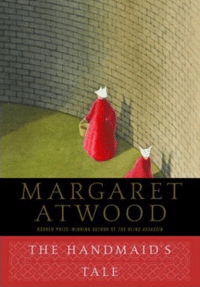Excerpts from interview with William Gibson in the Paris Review
INTERVIEWER: Do you take notes?
GIBSON: I take the position that if I can forget it, it couldn’t have been very good.
“Naps are essential to my process. Not dreams, but that state adjacent to sleep, the mind on waking.”
“It’s harder to imagine the past that went away than it is to imagine the future. What we were prior to our latest batch of technology is, in a way, unknowable. It would be harder to accurately imagine what New York City was like the day before the advent of broadcast television than to imagine what it will be like after life-size broadcast holography comes online. But actually the New York without the television is more mysterious, because we’ve already been there and nobody paid any attention. That world is gone.”
“My great-grandfather was born into a world where there was no recorded music. It’s very, very difficult to conceive of a world in which there is no possibility of audio recording at all. Some people were extremely upset by the first Edison recordings. It nauseated them, terrified them. It sounded like the devil, they said, this evil unnatural technology that offered the potential of hearing the dead speak. We don’t think about that when we’re driving somewhere and turn on the radio. We take it for granted.”
“We know that something happened then. We know that broadcast television did something—did everything—to us, and that now we aren’t the same, though broadcast television, in that sense, is already almost over. I can remember seeing the emergence of broadcast television, but I can’t tell what it did to us because I became that which watched broadcast television.
“In Neuromancer, the whole range of social possibility when they meet is, Shall we have sex, or shall I kill you? Or you know, Let’s go rob a Chinese corporation—cool!”
“If you’re visiting the future, you really want to have a few of the “shit, could they do that?” moments.”
“In Neuromancer, the war starts, they lose a few cities, then it stops when multinational corporations essentially take the United States apart so that can never happen again. There’s deliberately no textual evidence that the United States exists as a political entity in Neuromancer. On the evidence of the text America seems to be a sort of federation of city-states connected to a military-industrial complex that may not have any government controlling it.”
“The Bridge is a fable about counterculture, the kind of counterculture that may no longer be possible. There are no backwaters where things can breed—our connectivity is so high and so global that there are no more Seattles and no more Haight-Ashburys. We’ve arrived at a level of commodification that may have negated the concept of counterculture.”
“Social change is driven primarily by emergent technologies, and probably always has been. No one legislates technologies into emergence—it actually seems to be quite a random thing.”
“It looks to me as though that prosthetic-memory project is going to be what we are about, as a species, because our prosthetic memory now actually stands a pretty good chance of surviving humanity. We could conceivably go extinct and our creations would live on. One day, in the sort of science-fiction novel I’m unlikely ever to write, intelligent aliens might encounter something descended from our creations. That something would introduce itself by saying, Hey, we wish our human ancestors could have been around to meet you guys because they were totally fascinated by this moment, but at least we’ve got this PowerPoint we’d like to show you about them. They don’t look anything like us, but that is where we came from, and they were actually made out of meat, as weird as that seems.”


